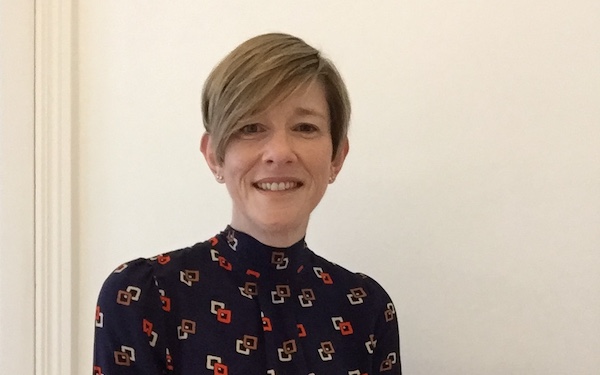Late last year, West Sussex County Council unveiled a major expansion of its children’s social care service and a new, enhanced deal for its social workers. The moves include an 11% increase in social worker posts and a retention offer worth £15,000.
This follows other initiatives, over the last two years, including changing its approach to career progression, with frontline social workers advancing based on their practice instead of having to wait for a vacancy on a higher pay grade.
We caught up with Sarah Daly, head of children’s social care, to find out more.
These are significant investments in West Sussex’s offer to social workers. What’s behind these changes?
It’s recognition that in some of our social work teams we need to bring caseloads down.
We’ve been on an improvement journey for the last two years with various initiatives, but we’re really excited by these latest changes which have been fully supported by our elected members and executive leaders. It means that we have been able to create an extra 37 social worker and 6 practice manager posts.
That’s a significant increase for the service – the workforce will grow by about 11%. As is the case in most local authorities, caseloads are not as low as we want them to be but we know that and we have a clear plan about how we’re going to change that. The extra social workers are part of that plan.
The council’s introduced retention payments too…
Yes, £15,000 over five years for both current and new social workers in a number of areas within the service.
We only introduced it recently but it’s already proving very popular. Externally we have seen applications in record numbers, with offers of employment already having been made. Most importantly, internally we only had one eligible social worker opt out.
You’ve also revised pay progression. What changed there?
We first looked at social worker progression in 2017, but during 2018 we have improved the process.
The way it used to work here was that if you were a children’s social worker hoping to go up a pay grade you had to wait for a vacancy to come up and then apply for it. We decided that wasn’t right. Why should frontline social workers have to go through that to get onto the pay grade that reflects their skills?
So we introduced progression panels. That panel includes the principal social worker, workforce development manager and a service lead. The social worker demonstrates their abilities and experience using examples from their practice and the panel makes a recommendation to me. I have the privilege of reading about the amazing work being done by these practitioners and it gives me great pride and pleasure to approve their progression to the next grade.
I think that’s the right approach, progress should be driven by professional ability not limited by vacancies.
Earlier, you said these are just the latest of a series of improvements. What else have you been doing?
There’s been quite a lot. I joined the council in summer of 2017 so I have seen a huge amount of effort to improve the way we do things. Today the vast majority of managers are permanent not agency and last year we encouraged them to join a rolling management development programme.
We’re working on improving the quality of supervision and of course we worked on the issue of pay, introducing market supplements to ensure we were competitive with neighbouring authorities.
Flexible working has been a big push too. We have nine-day fortnights, part-time posts and our social workers can increasingly work remotely.
Then there’s also our Casual Bank, which we launched at Community Care Live in September. It is ideal for social workers who may be unable to commit to regular hours due to caring responsibilities or other factors. The interest we have seen in this is very encouraging.
What would you say your approach to being a head of service is like?
Well, it’s probably for others to judge but I want to be – and hope I am – someone that the frontline feels is on their side ensuring that I understand how it is for them as practitioners in West Sussex.
I might be a head of service but I am still a social worker and recognise what being a frontline children’s social worker is like.
I still enjoy having a slice of cake with the frontline teams, discussing their cases and celebrating their successes. And, I’m not above having a cry – this is a really demanding profession and when I hear about the amazing work being done with our children and families here in West Sussex, I have been known to get a little emotional!
Any advice for social workers interested in joining West Sussex who’d like to know more?
To quote my more IT savvy colleagues they should #stepthisway
Seriously though I’d suggest they come to an open evening we’re holding on the 19th February. It’s a chance to meet people from all parts of the service and find out what opportunities we have.
It’s going to be a pretty informal event, just a chance to come and chat to us. We’re holding it in Crawley, which has great transport links, to make it as easy as possible for people to drop in.
Also, if you’re someone looking to return to social work do get in touch – we’ve got a whole programme designed to help people come back into the profession.




 Facebook
Facebook X
X LinkedIn
LinkedIn Instagram
Instagram